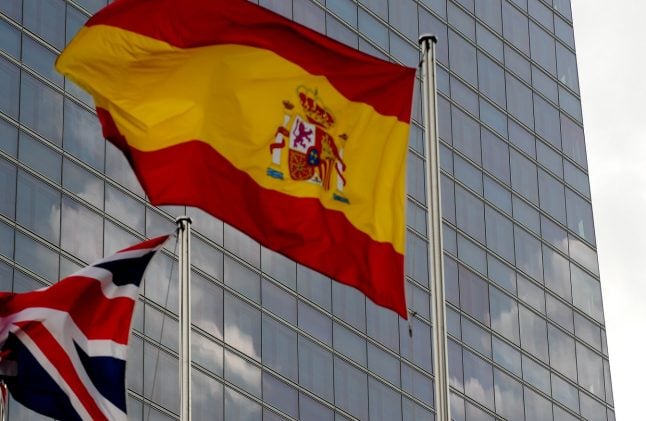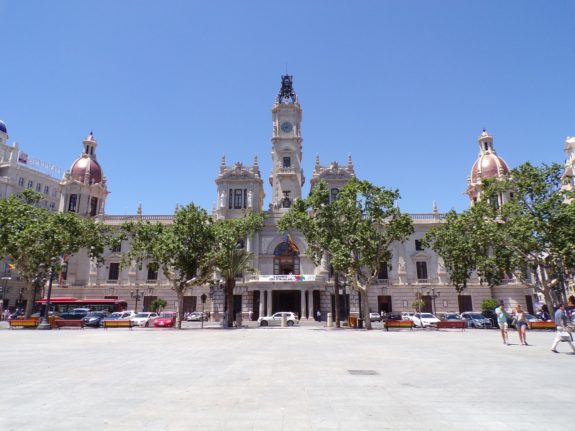But when covid-19 hit Spain, it not only scuppered travel plans but forced people who were planning on moving here to put the relocation on hold. The total lockdown in Spain also meant that government offices closed and that meant delays in registering and paperwork.
So this week the British Embassy in Madrid issued a reminder for Brits in Spain aimed at reassuring those who are nervous about the implications of coronavirus with the Brexit withdrawal agreement deadline looming.
“Please remember that citizens’ rights are already protected by the Withdrawal Agreement, which was ratified by the UK and the EU in January,” a statement from the Embassy said.
This means that as long as you are legally resident here by the end of 2020 your rights to continue to live and work here are guaranteed.
And for those who have retired here, the Withdrawal Agreement guarantees that UK state pensioners will continue to have lifelong healthcare access as long as they remain living in Spain (this also applies to residents who claim a UK state pension in the future) and that UK state pension will continue to be uprated.
“Our key message remains to register as a resident as soon as you are able,” insists the Embassy although it accepts that this has been difficult with the closure of administrative offices during lockdown.
Their advice is to keep checking the Spanish Administration portal to see if appointments for “residencia” are available again in your area.
Once a province has moved into Phase 2 of the de-escalation plans some offices are again offering a limited number of appointments but bear in mind that restrictions are being lifted at different rates across Spain.
What do you mean by legal resident?
If you are British and have lived in Spain over 3 months then (until the end of the transition period) you can apply for legal residency as a citizen of an EU member state.
This looks like a green credit card size piece of paper with the words “certificado de registro de Ciudadano de la Unión”.
This replaced an A4 size green piece of paper which is still valid. (Both are pictured below):

If you have been a resident for over 5 years then the certificate can be replaced with one that states “caracter permanente”.
It will have your name, address and NIE (Número de Identidad Extranjero) and this is all you need to guarantee your future in Spain when the transition period ends on December 31st 2020.
Just to be clear, having a NIE – Número de Identificación de Extranjero – is not a guarantee that you are registered as a resident. This identification number in Spain for everyone who is not a Spanish citizen and can be issued to those who have bought property but don't necessarily live here.
It is also not the same as being registered on the Padron – which is when you register at your local town hall.
“Please make sure you are registered correctly and that means that you should have either an A4 size green piece of paper or a small credit card size piece of green paper,” explained Sarah-Jane Morris, the Consul General at the British Embassy in Madrid.
“Both of which will say that you are registered with the central register of citizens here in Spain,” she said during a recent Q and A session on the FCO's Brits in Spain Facebook page.
“If you don't have one of those then make an appointment ASAP with your local foreigners office (Extranjeria) or if there isn't one then your local National Police station.”
READ ALSO Brexit: How to register as an EU resident in Spain
But what about the TIE?
The TIE (Foreigner Identity Card) is the residence document that will explicitly show you have rights under the Withdrawal Agreement once the transition period is over and it is likely at some point that Brits in Spain will have to replace their green certificate with a TIE.
But Spanish authorities have not yet announced when this will be introduced.
So until they do, those registering for the first time will be issued with the green residency certificate.
Don’t panic!

HMA Hugh Elliott issued a message of reassurance to Brits in Spain. Photo: British Embassy Madrid / FCO
The British Ambassador to MadridHugh Elliott issued a message to reassure Brits who may not yet have the correct documentation:
“I know that because of the suspension of residency appointments during the state of emergency, many UK nationals are concerned about their ability to obtain the correct documentation before December 31,” he said.
“I want to reassure people on two points. If you already have the green residency certificate, your core rights are protected and it remains a valid document, even after the end of the transition period.
“If you don’t yet have your green residency certificate there is, likewise, no need for alarm. We continue to advise people to get an appointment as soon as you can.
“However, as long as you are living in Spain and can prove that you satisfy the legal conditions of residence (ie. sufficient income and access to healthcare) by 31 December 2020, your rights are assured even if you are not able to get the physical document before the end of the year.”
More information:
The Spanish government has a dedicated Brexit page in English HERE
The UK foreign office issues official guidance for Brits living in Spain HERE
READ ALSO ANALYSIS: What will Brits in Spain need to get 'settled status'?



 Please whitelist us to continue reading.
Please whitelist us to continue reading.
This doesn’t answer the question for people stuck in UK who either have, or were going to buy properties and move over to Spain and get residencia before transition ends. They still don’t know when they will be allowed in. Will there be any extension for them?. So far these questions have been ignored